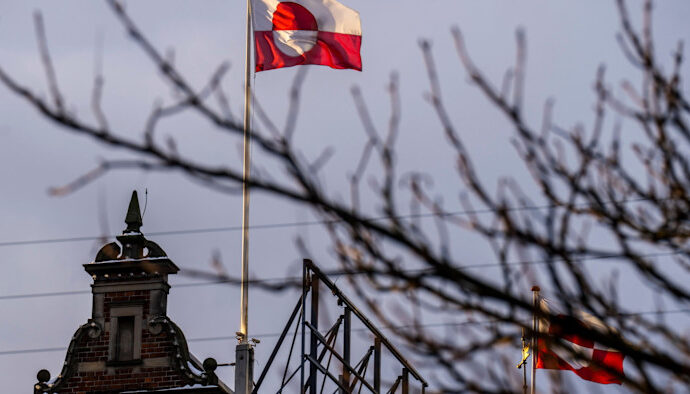Unlock the Editor’s Digest for free
Roula Khalaf, Editor of the FT, selects her favourite stories in this weekly newsletter.
Shigeru Ishiba said on Monday he would continue to lead Japan as prime minister and press for quick talks with Donald Trump on trade after the Liberal Democratic party lost its majority in both houses of parliament for the first time.
The LDP and its coalition partner, Komeito, emerged from Sunday’s pivotal election to the 248-seat upper house at least two seats short of the figure needed to retain a majority.
“The most important thing for Japan is political stability, as the country faces various challenges,” said Ishiba.
“Japan is now facing a severe situation that could be called a national crisis,” said Ishiba, listing US tariffs, inflation, the most complex security environment since the end of the second world war and the risk of an earthquake directly under the Tokyo metropolitan area “that could happen tomorrow”.
The press conference by Ishiba, which he opened with an apology to his own party, followed a meeting with the most senior figures in the LDP during which he appeared to have secured their support to remain in office. Some within the LDP had expected Ishiba to resign after a poor performance in two successive elections.
Among the many issues looming over Sunday’s election was the impending 25 per cent tariff that the Trump administration plans to impose on Japanese goods from August 1, despite Japan being both America’s largest source of direct investment and the first country to open negotiations with the US on the “reciprocal” tariffs.
“I would personally like to speak directly with President Trump as soon as possible to achieve tangible results,” said Ishiba, whose chief negotiator Ryosei Akazawa, is also due to travel to Washington this week for more talks.
Japan’s Association of Corporate Executives urged the government to waste no time in forming a coalition and a unified negotiating position on trade. “Any delay in national politics is unacceptable,” the lobby group said.
The result of the election, which was fought against a background of rising living costs, higher levels of immigration and wages that have failed to keep up with inflation, reflects public disappointment with the LDP’s efforts to protect households from economic pain.
On Monday Ishiba said that he agreed with the opposition Constitutional Democratic Party of Japan’s opinion that cash handouts would be the quickest way of providing relief to households, and that proposals of large tax cuts by more radical parties would “take too long”.
The most striking gains of the night were made by the Democratic Party for the People, which increased its share from nine seats to 22. The anti-foreigner Sanseito party, having previously held just two seats, emerged with a 15–seat position in the upper house.
Yu Uchiyama, a political scientist at the University of Tokyo, said that the LDP’s backing for Ishiba was most probably temporary.
“Japan needs a deal with Trump and that is difficult to do if you are changing government. But once a deal is done, the movement to bring down Ishiba will accelerate and there will be a very harsh battle for leadership within the LDP,” said Uchiyama, who said that the party might choose a candidate from its right wing, such as Sanae Takaichi, in order to claw back the voters who defected to small hardline parties on Sunday.
Despite their losses, the LDP performed somewhat better than the initial exit polls suggested, and remains the single largest party in parliament.
Ishiba, who has built a political career on his broad appeal to ordinary working Japanese, acknowledged that his party’s efforts to alleviate rising prices had not reached enough people. Over the past year, rice prices have roughly doubled.
Both political and financial analysts predict instability as the incumbent parties and the populist opposition parties map out their positions in the new parliamentary landscape.
Bond and currency markets are expected to be volatile as emboldened leaders of the Democratic party for the People and Sanseito press their advantage in a situation that has forced the LDP on to the back foot. Markets were shut in Tokyo on Monday but the yen strengthened 0.4 per cent in foreign exchange markets to ¥148.2 a dollar.
The LDP lost its majority in the lower house when Ishiba called a snap general election in October. The LDP has not been in a minority position in both houses simultaneously since its foundation in 1955.
Two people close to the top echelons of the LDP said that support for Ishiba was based around the need for stability while Japan negotiated a trade deal with the US.
Naohiko Baba, Japan economist at Barclays, said in a note on Monday that historical precedent suggested Ishiba would be held strictly accountable within the LDP.
Ryutaro Hashimoto resigned as prime minister in 1998 following a crushing defeat in the upper house election and, in 2007, Shinzo Abe lost a majority in the same chamber and resigned one month later.


